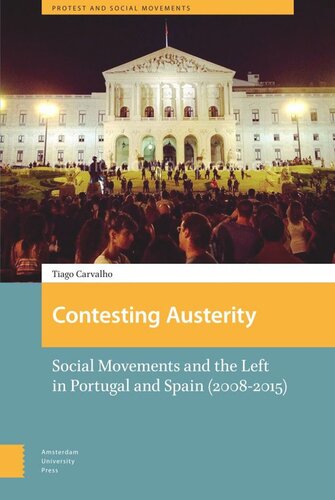

Most ebook files are in PDF format, so you can easily read them using various software such as Foxit Reader or directly on the Google Chrome browser.
Some ebook files are released by publishers in other formats such as .awz, .mobi, .epub, .fb2, etc. You may need to install specific software to read these formats on mobile/PC, such as Calibre.
Please read the tutorial at this link: https://ebookbell.com/faq
We offer FREE conversion to the popular formats you request; however, this may take some time. Therefore, right after payment, please email us, and we will try to provide the service as quickly as possible.
For some exceptional file formats or broken links (if any), please refrain from opening any disputes. Instead, email us first, and we will try to assist within a maximum of 6 hours.
EbookBell Team

4.0
86 reviewsDespite the historical and political similarities between Portugal and Spain, the contentious responses to austerity diverged in terms of number, rhythm and players. This book compares the contentious responses to austerity in Portugal and Spain during the Eurozone crisis and the Great Recession between 2008 and 2015. While in Spain a sustained wave of mobilisation lasted for three years, involving various players and leading to a transformation of the party system, in Portugal social movements were only able to mobilise in specific instances, trade unions dominated protest and, by the end of the cycle, institutional change was limited. Contesting Austerity shows that the different trajectories and outcomes in these two countries are connected to the nature and configurations of the players in the mobilisation process. While in Spain actors’ relative autonomy from one another led to deeper political transformation, in Portugal the dominance of the institutional actors limited the extent of that change.